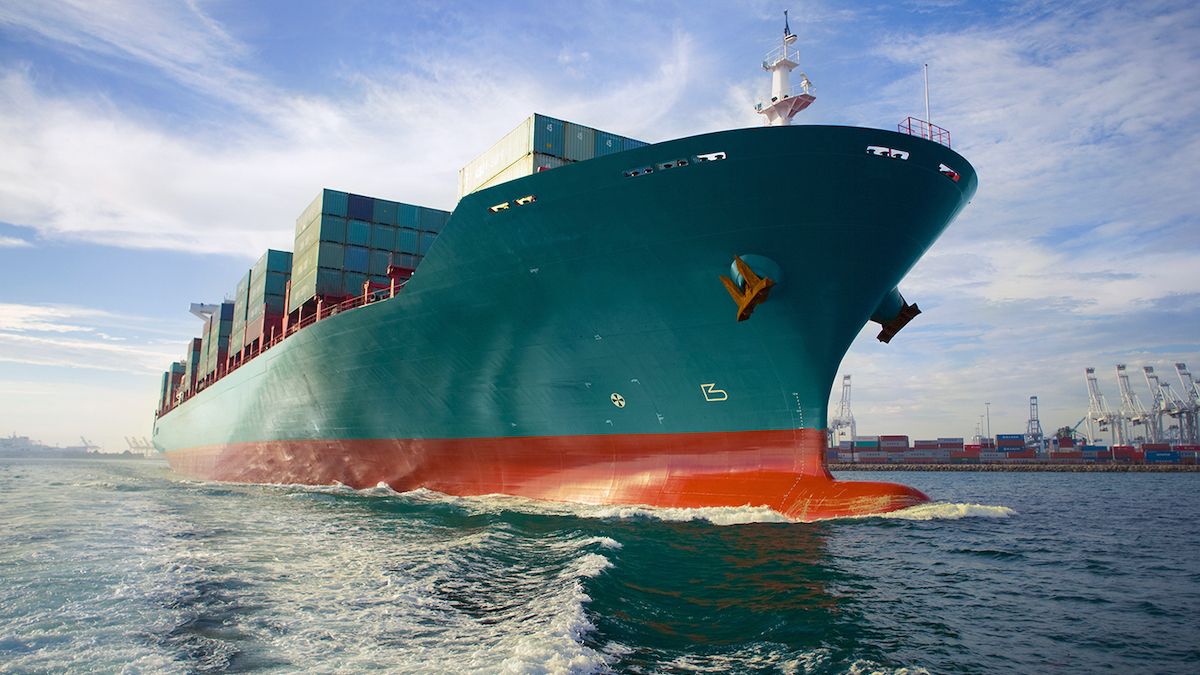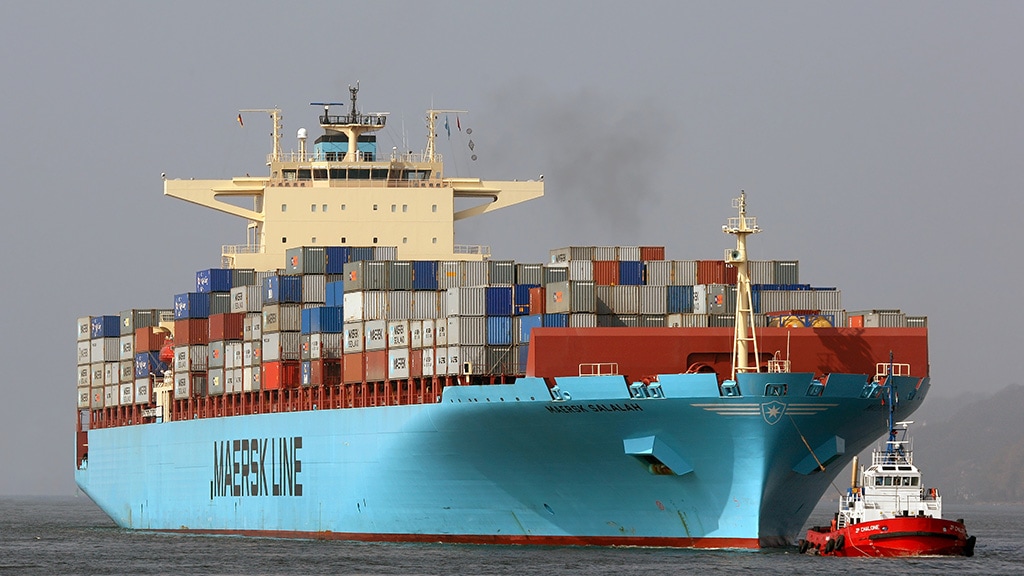The world of marine transportation, often hidden beneath the surface of more popular careerchoices, is a captivating realm filled with opportunities and potential. As globalization and international trade continue to thrive, the importance of the maritime industry cannot be overstated.
In this article, we delve into the question: Is marine transportation a good career path? We will explore the key factors that make it an attractive choice for those seeking a fulfilling and dynamic profession on the high seas and along the bustling shores.
What Is Maritime Transport?
Maritime transport, often simply referred to as shipping, is a crucial component of the global transportation system that involves the movement of goods, people, and services by sea. It encompasses the use of ships, boats, and vessels to transport cargo and passengers across oceans, seas, rivers, and other bodies of water. Maritime transport is a fundamental pillar of international trade, facilitating the movement of goods between countries and continents.
There are various types of vessels used in maritime transport, each designed for specific purposes. These include cargo ships for transporting goods, container ships for standardized cargo containers, tankers for carrying liquid cargo like oil and chemicals, passenger ships for cruises and ferry services, and more.
The maritime industry plays a significant role in the global economy, responsible for the transportation of a vast majority of the world's goods. It provides job opportunities for a wide range of professionals, including seafarers, ship engineers, naval architects, port workers, logistics experts, and maritime lawyers.
Maritime transport also has a critical impact on the environment, and efforts are ongoing to improve the industry's sustainability and reduce its carbon footprint. This includes initiatives to develop cleaner and more energy-efficient vessels and to minimize the environmental impact of shipping operations.
What Skills And Education Are Required In Marine Transportation?
A career in maritime transportation demands a unique set of skills, qualifications, and attributes. To thrive in this industry, individuals should possess a strong sense of adventure, adaptability, and a deep appreciation for the sea. Working at sea often involves extended periods away from home, so resilience and the ability to cope with isolation are crucial.
Good communication skills, teamwork, and the ability to follow strict safety protocols are also essential as safety is a top priority in the maritime sector. Physical fitness is important, especially for seafarers, as the work can be physically demanding. Additionally, a willingness to continually learn and adapt to evolving industry standards and technologies is a valuable trait.
While a degree is not always mandatory for entry-level positions in marine transportation, it can significantly enhance career prospects and opportunities for advancement. Many roles in the maritime industry require specialized education and training.
However, practical experience and vocational training programs are often considered equally important. For example, aspiring seafarers may pursue courses and certifications related to seamanship, navigation, and marine engineering at maritime academies or training institutes.
Several degree programs cater to those interested in pursuing careers in marine transportation. These programs provide a solid foundation of knowledge and skills required in the industry. Some of the common degree options include:
- Bachelor of Science (B.Sc.) in Marine Transportation -This program typically covers navigation, ship handling, maritime law, and management. It is well-suited for those aiming to become ship officers or captains.
- Bachelor of Science (B.Sc.) in Marine Engineering -Focusing on the technical aspects of ship operation, this program emphasizes marine propulsion systems, maintenance, and engine room operations. Graduates often work as marine engineers.
- Bachelor of Science (B.Sc.) in Nautical Science -This degree program combines aspects of marine transportation and navigation. It prepares students for roles as deck officers responsible for ship navigation and safety.
- Bachelor of Science (B.Sc.) in Maritime Studies -This interdisciplinary program may cover various aspects of the maritime industry, including logistics, economics, and environmental sustainability, offering a broader perspective on maritime careers.
Marine Transportation Career Opportunities
A career in marine transportation offers a wide range of opportunities, both at sea and onshore. The maritime industry is vast and diverse, providing job prospects for individuals with various skills, interests, and qualifications. Here are some of the key career opportunities within marine transportation:
Seafaring Roles
- Ship Captain -Captains are responsible for the overall operation and navigation of a vessel. They ensure the safety of the crew, passengers, and cargo and are in command of the ship.
- Deck Office -Deck officers, including first officers and second officers, assist the captain in navigating the ship, maintaining safety protocols, and overseeing cargo operations.
- Marine Engineer -Marine engineers are responsible for the maintenance and operation of a ship's propulsion and engine systems. They ensure the vessel's mechanical systems run smoothly.
- Able Seaman -Able seamen perform various deck duties, including handling cargo, maintaining equipment, and assisting with navigation. They are essential crew members on cargo and passenger ships.
Shoreside Roles
- Port Manager -Port managers oversee the operations of ports and terminals, ensuring efficient cargo handling, security, and compliance with regulations.
- Maritime Logistics Specialist -These professionals manage the logistics and supply chain aspects of maritime transportation, including cargo scheduling, container management, and distribution.
- Maritime Safety and Security Specialist -Individuals in this role focus on maintaining safety and security standards in the maritime industry, including compliance with international regulations and emergency response.
- Maritime Law and Compliance Officer -Maritime law experts help navigate the legal aspects of the industry, including contracts, environmental regulations, and maritime accidents.
- Maritime Surveyor -Surveyors inspect ships, cargo, and maritime facilities to ensure compliance with safety and quality standards. Their assessments help mitigate risks and maintain industry standards.
Environmental And Sustainability Roles
- Marine Environmental Scientist - These professionals work on environmental research, conservation, and sustainable practices within the maritime industry, addressing issues like pollution, conservation, and marine ecology.
- Maritime Sustainability Analyst -Maritime sustainability analysts focus on identifying and implementing eco-friendly practices and technologies to reduce the environmental impact of shipping.
Training And Education
Maritime Educator -Maritime academies and training institutions employ experienced professionals to educate the next generation of seafarers, offering courses in navigation, engineering, and maritime management.
Technical And Engineering Roles
- Maritime Engineer -Engineers specializing in naval architecture and marine engineering design and maintain ships, offshore platforms, and marine equipment.
- Shipyard Manager - Shipyard managers oversee the construction, repair, and maintenance of vessels in shipyards and dry docks.
Marine Research And Surveying
- Marine Biologist -Marine biologists study marine life and ecosystems, contributing to conservation efforts and environmental protection in marine environments.
- Hydrographer -Hydrographers map the seabed, ensuring safe navigation and contributing to scientific research and resource exploration.
What Is The Highest Paying Maritime Job?
Marine Service Department Manager
- Median Salary - $62,000
- Education - High School Education
- Projected Growth - 4%
Marine service department managers are in charge of all the different tasks that need to be done to get Marine fleet equipment ready for use, rebuild it, fix it up, or make it better.
These people are like "boat mechanics" but more powerful. When a ship comes into port, they check every part of it to make sure it is in good shape and safe to sail. Sometimes the work is hard, but it's always interesting and fun, especially for people who like to solve problems and work with their hands.
Radio Tech
- Median Salary - $71,000
- Education - Bachelor’s Degree
- Projected Growth - 4%
Radio technicians play a big role in the logistics of maritime transportation. They not only develop and set up radio communication technology and a wide range of other radio programs, but they also run that technology.
There is a good chance that the person who maintains and upgrades this kind of technology is also the person who works in sea transportation. A radio mechanic is responsible for all things related to radio tools, including keeping them in good shape and fixing them when they break.
Marine Surveyor
- Median Salary - $84,500
- Education - Bachelor’s Degree
- Projected Growth - 3%
Marine surveyors are in charge of checking all marine equipment, including the boats themselves, to make sure it is up-to-date, fixed properly, has had all its regular maintenance, and is completely seaworthy and as safe as it can be.
Besides all of that, marine surveyors are usually the ones who watch over and check the loading and unloading of all the goods that come on or off of the ships they are supervisory over.
Shipbuilding Engineer
- Median Salary - $78,000
- Education - Engineering degree
- Projected Growth - 4%
There is a huge need for shipbuilding experts because the methods used to build ships today are getting more complicated. When you're building oceangoing ships that will be the backbone of a marine transportation system, you can't exactly skimp on materials.
There are many engineers who work on shipbuilding projects. They plan and build ships with other engineers. To get into this type of job, you need to go to college for four years and focus on engineering. Also, many companies like to see at least two years of work "in the field" before they promote or hire people for higher positions in this area.
Marine Technician
- Median Salary - $51,000
- Education - High School Education
- Projected Growth - 3%
With all the traffic and activity that oceangoing boats see and do these days almost 24 hours a day, seven days a week, 365 days a year - they often need repairs, upgrades, and regular maintenance to keep them fully functional.
Most of the time, marine techs are in charge of fixing and upgrading things on these oceangoing ships as well as keeping the plumbing and electrical systems in good shape.
These people often live on ships and work in shifts to check them out and make improvements. They may also work "in the yard" on boats and ships that are docked while they wait for a bunch of improvements to be made all at once.
Marine Welder
- Median Salary - $80,000
- Education - High school education
- Projected Growth - 5%
The skill of welding is one of the most in-demand in the world right now. Marine welders, who know how toweld in the traditional way and can also work in marine conditions, make some of the best moneyin this field.
It is already hard enough to weld on dry land. It's not the same thing to weld on a ship or boat while it's rocking and rolling out in the ocean. Marine welders are paid the most of any welders in the world today. Some of them can even go underground and weld on boats and other equipment used offshore.
Anyone with a high school diploma or even just the ability and interest in marine welding can go into this field. Just keep in mind that marine welders who want to work in the "big box" often learn how to scuba dive in order to make it.
Marine Painter
- Median Salary - $45,000
- Education - High school education
- Projected Growth - 6%
It might not sound like the most exciting thing in the world to paint ships and other tools used for marine transportation, but it's actually a lot more important than that.
If you paint a marine vessel, it will be protected from the weather, especially salt water, which would love to rust these ships to pieces, making them useless and expensive metal shells that would look best scuttled and dropped into the water to form an artificial reef.
Marine painting is pretty advanced, and professionals in this field have had a lot of training in how to use special spray tools, paint types, prep materials, and a lot more. In this field, there is always work, though. All boats in the water need paint ready all the time.
Port Engineer
- Median Salary - $90,000
- Education - Bachelor’s Degree
- Projected Growth - 5%
It pays well to be a port engineer because they are one of the most important people in the world of shipping.
In the United States, the median pay for a port engineer is currently around $90,000. However, it's not uncommon for these professionals to make a lot more than that. Some years it can be as much as $500,000 a year or more.
That's because port engineers are always trying to make ports and the infrastructure that supports them as safe, useful, and efficient as they can be. There is always work to be done on ships, on time, and on equipment that needs to be fixed, replaced, or improved. It's easy for the best port engineers to handle a lot of tasks at once because they are very organized.
Naval Architect
- Median Salary - $76,000
- Education - Bachelor’s Degree
- Projected Growth - 7%
Though that is often a big part of their job, naval engineers are in charge of more than just designing new boats, ships, and military gear.
In addition to all of that, naval architects will work with marine engineers, port engineers, and ship crews to figure out how to build the best and most efficient ships and the facilities that will support them all.
Naval engineers are experts with technical materials and use powerful computers to design and build ship blueprints. They are always looking for ways to combine form and function, as well as safety, to make the most advanced and impressive oceangoing ships the world has ever seen.
Shipwright
- Median Salary - $42,000
- Education - Shipwright Apprenticeship
- Projected Growth - 6%
Today, almost all shipwrights start their careers by going to a maritime shipbuilding school or working directly under a master shipwright to learn the trade from scratch.
An apprenticeship as a shipwright can last anywhere from two to five years, or even longer. As soon as skilled shipwright becomes an expert in their field, they almost always take on apprentices of their own.
Some people think of shipwrights as builders who only work on ships, but that's not all they do these days. They usually know a bit about engineering and can suggest improvements and fixes. They also work closely with the rest of the ship's infrastructure crew to make sure the ships they're in charge of work as well as possible.
What Is The Biggest Maritime Company?
Determining the "biggest" maritime company can be subjective and can depend on various factors, such as the criteria used, whether it's based on fleet size, revenue, or market capitalization. Additionally, the rankings of maritime companies can change over time due to mergers, acquisitions, and industry fluctuations. However, some of the largest and most well-known maritime companies in the world include:
- Maersk Line -Part of the Maersk Group, it is one of the largest container shipping companies globally.
- Mediterranean Shipping Company (MSC) -Another major player in container shipping with a vast global network.
- CMA CGM Group -A French container transportation and shipping company with a significant global presence.
- China COSCO Shipping Corporation -One of the largest state-owned shipping giants in China and globally.
- Evergreen Marine Corporation -A Taiwanese container transportation company with a sizable fleet.
- K-Line (Kawasaki Kisen Kaisha) -A Japanese transportation company engaged in various shipping segments.
- NYK Line (Nippon Yusen Kaisha) -A Japanese shipping company with a diverse range of services.
- Hapag-Lloyd -A German container shipping company that operates globally.
- AP Moller-Maersk -The parent company of Maersk Line, involved in various sectors, including container shipping, logistics, and energy.
- COSCO Shipping Holdings -A subsidiary of China COSCO Shipping Corporation, involved in container shipping and terminal operations.
Average Salary For Marine Transportation Jobs
Salaries in the field of marine transportation can vary widely based on factors such as job type, experience, location, and the specific company or organization. Below are the approximate average salaries for various marine transportation jobs in the United States as of my last knowledge update in September 2021. Keep in mind that these figures are subject to change over time and may vary by region:
- Ship Captain -Ship captains, also known as masters, can earn a median salary ranging from $80,000 to $150,000 or more per year, depending on the type and size of the vessel and their level of experience. Captains of larger ships, such as container ships or oil tankers, tend to earn higher salaries.
- Deck Officer -Deck officers, including chief mates and second mates, typically earn salaries in the range of $50,000 to $120,000 per year. Salaries vary based on the rank, experience, and type of vessel they serve on.
- Marine Engineer -Marine engineers can earn annual salaries ranging from $60,000 to $140,000 or more. The specific salary depends on their experience, qualifications, and the type of vessel or marine equipment they work on.
- Able Seaman -Able seamen often earn salaries between $40,000 and $80,000 annually, depending on their experience and the type of vessel. Entry-level positions may have lower starting salaries.
- Marine Technician -Marine technicians who handle electrical and mechanical systems on ships and vessels can expect salaries ranging from $40,000 to $80,000 per year, depending on their skills and experience.
- Marine Surveyor -Marine surveyors may earn annual salaries between $50,000 and $100,000 or more, depending on their expertise, certifications, and the scope of their responsibilities.
- Marine Biologist -Marine biologists typically earn salaries in the range of $50,000 to $80,000 per year, with variations based on their level of experience and the employer (e.g., research institutions, government agencies, or private companies).
- Port Manager -Port managers can earn salaries that vary widely based on the size and importance of the port. Salaries may range from $60,000 to $150,000 or more per year.
- Naval Architect -Naval architects may earn salaries between $60,000 and $120,000 annually, with variations depending on experience, education, and the complexity of the projects they work on.
- Marine Shipping Broker -Marine shipping brokers often work on a commission-based system, so their earnings can vary significantly. Experienced brokers may earn well into six figures or more annually.
How To Get A Job In The Marine Transportation Industry?
Getting a job in the marine transportation industry requires a combination of education, training, networking, and determination. Here are steps to help you embark on a career in this field:
Determine Your Career Goals
Identify the specific job or role you are interested in within the marine transportation industry. Whether you aspire to be a ship captain, marine engineer, marine biologist, or work in another capacity, knowing your career goals will guide your path.
Obtain The Necessary Education And Training
- Research the educational requirements for your chosen career. Many positions in the marine transportation industry require specific degrees, certifications, or licenses. Common degrees include marine engineering, nautical science, or maritime management.
- Enroll in accredited maritime academies, universities, or vocational schools offering programs relevant to your career goals.
- Complete required training programs, such as firefighting, first aid, and survival training, as needed for your desired position.
Gain Practical Experience
- Look for internship opportunities or entry-level positions in the industry to gain practical experience. Consider roles such as deckhand, marine technician, or entry-level crew member to start building your maritime experience.
- Volunteer for maritime-related organizations or projects to enhance your resume and demonstrate your commitment to the field.
Obtain Required Certifications And Licenses
- Depending on your chosen career path, you may need to obtain specific certifications and licenses. For example, ship captains require a US Coast Guard license.
- Ensure you meet the eligibility criteria and complete any required exams or training to obtain these credentials.
Network Within The Industry
- Attend maritime industry conferences, seminars, and networking eventsto connect with professionals in the field. Building a network can help you discover job opportunities and gain insights into the industry.
- Join professional organizations related to marine transportation, such as the Marine Transportation Association or the International Maritime Organization (IMO).
Create A Strong Resume And Cover Letter
- Craft a well-structured resume that highlights your relevant education, training, certifications, and experience. Tailor your resume to the specific job you're applying for.
- Write a compelling cover letter that explains your passion for the marine transportation industry and your qualifications for the role.
Search For Job Openings
- Utilize job search platforms, company websites, and maritime-specific job boardsto search for job openings.
- Consider reaching out to maritime companies directly, especially if you have a specific employer in mind.
Prepare for Interviews
Practice common interview questions and scenarios related to the maritime industry. Be prepared to discuss your relevant experience, certifications, and your commitment to safety and teamwork.
Apply For Positions And Follow Up
Submit your applications for open positions and follow up with potential employers to express your interest and inquire about the status of your application.
Stay Informed And Adaptable
- Keep up with industry developments, technology, and regulations. The maritime industry is continually evolving, and staying informed can make you a more competitive candidate.
- Be adaptable and open to different opportunities within the field. Your career path may evolve as you gain experience and expertise.
What Are The Pros And Cons Of Working In The Maritime Transportation?
Working in the maritime transportation industry offers unique advantages and challenges. Here are some of the key pros and cons to consider:
Pros Of Working In Maritime Transportation
- Global Opportunities -The maritime industry operates worldwide, providing opportunities to travel and work in various locations around the globe. This can be appealing to those who enjoy exploring new places and cultures.
- Competitive Salaries -Many positions in the maritime industry offer competitive salaries, making it possible to earn a good income, especially for experienced professionals in high-demand roles.
- Job Security -The maritime industry plays a crucial role in global trade and commerce, providing a degree of job security even during economic downturns. There is a continuous demand for skilled professionals in this field.
- Career Advancement -There is often room for career advancement in maritime transportation, allowing individuals to climb the ranks and take on more responsibility over time. This can lead to higher salaries and greater job satisfaction.
- Unique Work Environment -Working at sea or in port facilities offers a unique work environment that can be exciting and adventurous for those who enjoy the ocean and maritime lifestyle.
- Variety of Roles -The industry offers a wide range of career paths, from seafaring positions (e.g., captain, engineer, deck officer) to onshore roles (e.g., port management, logistics, maritime law) and technical positions (e.g., marine surveyor, marine biologist).
- Sense of Accomplishment -Successfully managing large vessels, cargo, and complex operations can provide a strong sense of accomplishment and pride in one's work.
Cons Of Working In Maritime Transportation
- Extended Periods Away from Home -For seafaring roles, extended periods spent at sea can result in significant time away from family and loved ones, which can be challenging for some individuals.
- Work-Life Balance -Balancing work and personal life can be difficult due to long working hours, unpredictable schedules, and the need to be on call 24/7 in certain roles.
- Isolation and Loneliness -Working on a ship can be isolating, as it involves limited social interaction and confinement to a relatively small space for extended periods.
- Physical and Mental Demands -The maritime industry can be physically demanding and mentally challenging, especially during adverse weather conditions or emergencies at sea.
- Safety Risks -The maritime industry carries inherent safety risks, and accidents or emergencies can occur. Safety training and preparedness are essential but cannot eliminate all risks.
- Regulatory Compliance -The industry is subject to a complex web of international regulations and standards, and maintaining compliance can be challenging and time-consuming.
- Environmental Impact -The industry can have significant environmental impacts, including air and water pollution, which has led to increased scrutiny and the need for eco-friendly practices.
- Seasonal Work -Some maritime jobs, such as those related to fishing or tourism, may be seasonal, leading to periods of unemployment or uncertainty.
- Technical Skills Required -Many roles in the industry require specialized technical knowledge and skills, necessitating formal education and ongoing training.
Frequently Asked Questions
What Is The Job Outlook For Careers In Marine Transportation?
The job outlook for careers in marine transportation varies by role. Some positions, such as ship captains and marine engineers, continue to be in demand due to global trade. However, it's essential to research the specific career path you're interested in for accurate employment projections.
Do You Need A College Degree For A Career In Marine Transportation?
The educational requirements depend on the career. Some roles, like ship captains and marine engineers, often require a bachelor's degree in relevant fields. However, there are opportunities in the industry, such as able seamen and marine technicians, that may not require a degree but do demand specialized training and certifications.
What Are The Typical Responsibilities Of A Marine Transportation Manager?
A marine transportation manager is responsible for overseeing various aspects of marine operations, including vessel maintenance, scheduling, crew management, and compliance with safety and environmental regulations. Their primary goal is to ensure the efficient and safe movement of goods and passengers via marine transport.
Conclusion
Marine transportation stands as a beacon of opportunity in a world interconnected by trade and global exchange. It offers a diverse array of career paths, competitive remuneration, and the prospect of traveling the world while making a living. With a focus on sustainability and continuous growth, the maritime industry ensures job security and room for advancement.
If you have a passion for adventure, a love for the sea, and a desire to contribute to a vital global industry, a career in marine transportation may indeed be a promising and rewarding path to embark upon. So, as you contemplate your future, don't forget to set your sights on the vast and exciting world of marine transportation.





